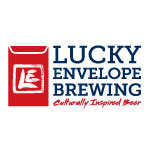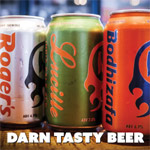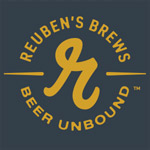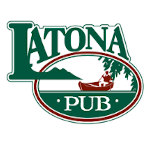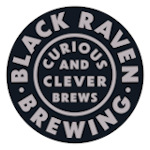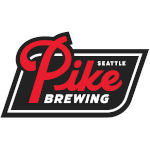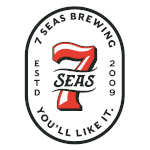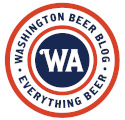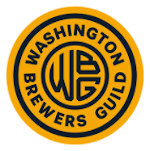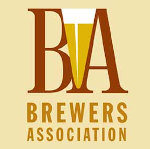Treasury Releases Competition Report for Alcohol Market, Recommends Boosting Opportunity for Small Businesses.
Today the U.S. Department of the Treasury released a report that assesses the status of the beverage alcohol industry. The report comes at the behest of an Executive Order intended to promote competition and benefit consumers as well as small businesses and entrepreneurs.
In July of 2021, President Biden issued Executive Order 14036, “Promoting Competition in the American Economy,” including the beverage alcohol industry. The stated goal of the Executive Order is to reduce the trend of corporate consolidation, increase competition, and deliver concrete benefits to America’s consumers, workers, and small businesses. Those benefits include more choices, better service, and lower prices for consumers through a competitive market.
The Executive Order required that the U.S. Department of the Treasury assess the current market structure and conditions of competition. This included an assessment of any threats to competition and barriers to new entrants. The Treasury worked with the Attorney General and the Chair of the Federal Trade Commission to produce the report. Read the 64-page report here.
In a press release, Assistant Secretary for Economic Policy Ben Harris said, “The report identifies several competitive issues in the beer, wine, and spirits markets, which, if remedied, would allow entrepreneurs, small businesses, and new entrants to compete on a level playing field with larger market participants.”
The report made recommendations about enforcing existing laws and modernizing outdated alcohol regulations. Among other things, the report noted that continued consolidation by the nation’s two largest beer producers (AB Inbev and Molson Coors) is of some concern. For instance, the report noted that “Studies have shown direct links between major brewery mergers and an ability to raise prices in the markets in which they compete.”
That is just one of several observations outlined in the report. Another concern involves distribution. In particular, the report noted “anticompetitive distribution practices, that hinder smaller and independent businesses or new entrants from distributing their products.”
The Brewers Association, which represents the nation’s small and independent brewers says that it appreciates the recommendation outlined in the report, but notes that there is still significant work to do in leveling the playing field. (The complete statement from the BA follows this story.)
In today’s press release, Assistant Attorney General Jonathan Kanter said, “American consumers, small business owners, entrepreneurs, and workers should not have to suffer under the thumb of a highly concentrated beer industry. Enforcement and regulatory authorities should have the courage to learn and the fortitude necessary to enforce the law and protect competition.”
In summary, the report identifies several priorities, including strengthened review of horizontal consolidation, enforcement of trade practice rules against exclusionary conduct, and reform of post-Prohibition era regulations that hinder small firms and new entrants from accessing the marketplace. Read the full report here.
Brewers Association’s Response
The Brewers Association had some suggestions prior to the Treasury conducting the report and has some commentary with its release. Below I share a statement issued by Bob Pease, president and CEO of the Brewers Association, regarding the Treasury Department’s report.
The Brewers Association thanks the White House, Treasury Department, the Department of Justice, and the Federal Trade Commission for their work on this report; and we appreciate the recognition that despite growing numbers of craft brewers, beer remains a heavily concentrated industry, which poses competition challenges to craft brewers and consumers. We applaud the Treasury Department’s recommendations on how to improve competition in the beverage alcohol industry, many of which align with the Brewers Association’s submitted comments (Comment Letter One, Comment Letter Two).
Upon an initial review of the Treasury’s Competition in the Markets for Beer, Wine, and Spirits report, we are glad to see that the report recognizes that some laws, even those originally designed for a pro-competitive purpose, have inhibited the growth and competitiveness of craft producers. Second, we see much to like in its conclusions and applaud the report’s focus on the Federal Alcohol Administration Act’s trade practice provisions and the continued need to combat practices like slotting fees and discriminatory conduct. Lastly, we appreciate the report’s recognition that some laws have become out-of-date and that new rules may better serve public health and foster competition.
While there remains significant work to be done at the federal and state level to translate these recommendations into improved market conditions, suggestions such as a re-examination of state franchise laws, greater direct-to-consumer access, updating trade practice regulations with an eye toward exclusionary practices, and considering the effect of small brewer acquisitions on distribution all stand to improve the ability of small firms to enter and effectively compete in beverage alcohol markets. The Brewers Association remains committed to ensuring a level playing field exists for small and independent brewers and looks forward to providing feedback to federal and state lawmakers on these recommendations and how they can be translated into a safe, competitive, and modern beverage alcohol market.


